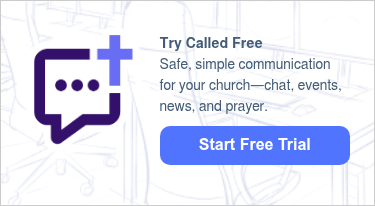Social Awareness & Relationship Management
 By
Called by Newman Ministry
·
3 minute read
By
Called by Newman Ministry
·
3 minute read
In part two of our series on emotional intelligence, we dove into the first two EQ skills, self-awareness and self-management. Below is a quick recap (or see here for the full edition).
Quick Recap: What is self-awareness and self-management?
Again, the four emotional intelligence skills are:
- Self-Awareness
- Self-Management
- Social Awareness
- Relationship Management
Each skill falls under one of two “primary competencies”, as Drs Bradberry and Greaves define them: Personal and Social competencies.

The two competencies of emotional intelligence: personal and social.
Personal competencies focus on you as an individual.
Social competencies focus on your ability to understand other people and their moods/behavior/motives in order to improve your relationships.
- Self-awareness is your ability to accurately perceive your own emotions in the moment and understand your tendencies across situations.
- Being self-aware isn’t about discovering your deepest darkest secrets or motivations. Instead, developing your self-awareness is about understanding what makes you tick. This includes your reactions to specific events, challenges, and people.
- Self-management, on the other hand, is what happens when you act—or do not act. You can use your awareness of your emotions to stay flexible and direct your behavior positively.”
- Self-management is more than just resisting explosive or problematic behavior, as well. The real challenge lies in managing your tendencies over time and applying your skills in many different situations.
Now let's focus on the social competency skills: Social awareness and Relationship management.
Social Awareness
Social awareness is your...
"...ability to accurately pick up on emotions in other people and understand what is really going on with them. This often means perceiving what other people are thinking and feeling even if you do not feel the same way."
Simply put: stop getting caught up in yourself and focus on the other person.
The biggest obstacle to truly listening and being observational in every situation is, you guessed it, you. But how do we do that practically?
Here are a few ways:
- Stop talking. Pretty self-explanatory. If you want to be a better listener, you have to stop talking all the time and actually listen.
- Stop the constant internal monologue. We all do it. My second-grade teacher called this "being off in la la land". A lot of the time we associate that image with "day-dreaming", but I think it works here as well. Be present.
- Stop anticipating a response. Don't make assumptions about what someone is going to say. If you do, you'll misconstrue what they actually say...even if their response isn't what you thought it was.
- Stop thinking about your response beforehand. Similar to the last point, just don't do it. And even worse...don't be thinking about something totally unrelated. No bueno.
Relationship Management
Relationship management is your...
"...ability to use your awareness of your emotions and those of others to manage interactions successfully... Relationship management is also the bond you build with others over time."
There are two sides to every relationship that is worth mentioning:
- Communication
- Handling conflict
Who else could use a bit of work on both of those? ✋
In every relationship, the first three EQ skills are on full display. Our relationships are where we are tested the most. It's the true "rubber hits the road" moment. Especially when the relationship is one that really tests us and is difficult to manage.
How can we as leaders build better relationships?
Here are three ways (I'm sure there are more, but start here):
- If you struggle with someone, intentionally seek them out. In my experience, when I'm proactive in a relationship that challenges me, the other person recognizes I am putting forth the effort to make it better. This builds trust and creates a space to discuss any conflicts openly and productively. Intentionally serves as a true "ego killer".
- Express gratitude openly and frequently. This is a real game changer and it makes total sense. When we know someone is grateful for us and that we are in their life, we light up like a Christmas tree. Why? Because we all want to be wanted and cherished. If you cherish a relationship, say it.
- Increase relationship frequency. To take an interaction to a relationship, you need to increase how much you're investing in that person. More time, more conversation, more depth. If you do that, the relationship is well on its way to being a quality relationship.
ACTION
This week, pick one of the two social skills above to focus on.
Depending on which one you choose, reflect on the following questions:
- Social Awareness: When in conversation or social settings, do you practice active listening? Why or why not? Take the week to really watch people as you interact with them (at work, in your family, etc.). The goal is to get a good sense of what they are thinking and feeling.
- Relationship Management: Stress is the single greatest threat to quality relationships, especially in the workplace. In what ways do you experience stress? How does that impact your relationships (bonus points if you can think of a specific relationship)? What can you do practically to counter that?
Called exists for this: Evangelize By Community.
We do so by empowering ministry leaders like you to build thriving groups and communities.
